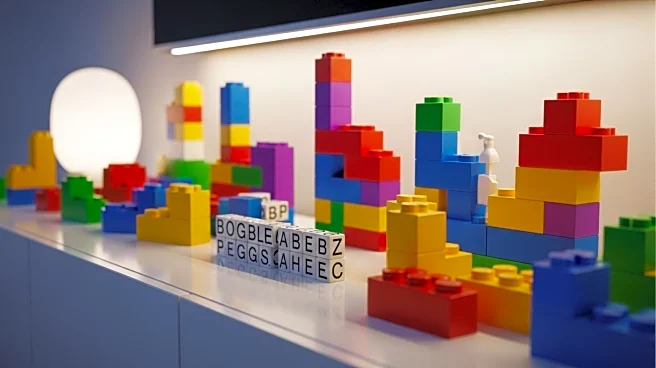What's Happening?
Netflix is expanding its gaming offerings by introducing a series of co-op party games available to subscribers during the holiday season. The lineup includes games such as Lego Party, Party Crashers: Fool Your Friends, Boggle, Pictionary, and Tetris Time Warp. These games are designed to be played using a smartphone as a controller, making the process as simple as streaming a show. This move marks a significant step for Netflix, which has primarily focused on mobile gaming until now. The initiative is part of Netflix's broader gaming strategy, which emphasizes multiplayer games alongside narrative titles, kid-friendly games, and mainstream experiences.
Why It's Important?
The introduction of TV party games by Netflix represents a strategic shift in the company's approach to gaming, potentially increasing subscriber engagement and retention. By offering interactive entertainment options, Netflix is diversifying its content portfolio beyond traditional streaming, which could attract a broader audience. This move also positions Netflix as a competitor in the gaming industry, challenging established players by leveraging its vast subscriber base. The success of these games could influence future content strategies and partnerships within the entertainment sector.
What's Next?
Netflix plans to launch these multiplayer TV games soon, although a specific date has not been announced. The company may expand its gaming offerings based on the reception of these initial games. Stakeholders, including game developers and streaming competitors, will likely monitor Netflix's progress in this area. The success of this initiative could lead to further investment in gaming content and technology, potentially reshaping the landscape of interactive entertainment.
Beyond the Headlines
Netflix's venture into TV party games could have broader implications for the streaming industry, highlighting the convergence of media and gaming. This development may prompt other streaming services to explore similar interactive content, fostering innovation and competition. Additionally, the use of smartphones as controllers could influence how gaming experiences are designed, emphasizing accessibility and ease of use.










